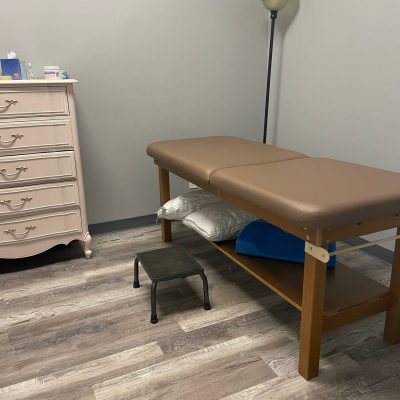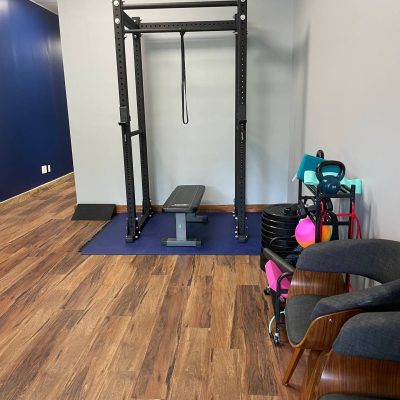Prostate surgery, whether it’s a prostatectomy or a less invasive procedure, can be a life-changing event for men. Day 1 post-op often brings a mix of relief and discomfort. For many, this marks the beginning of recovery from prostate cancer or other prostate-related health issues. However, it’s also a time when men may experience physical and emotional challenges. Among the most important steps in this journey is addressing pelvic floor health—a key component in regaining continence, sexual function, and overall well-being.
As a pelvic floor therapist, I’ve worked with countless men in their recovery after prostate surgery, and one thing is clear: targeted pelvic floor therapy can significantly impact their quality of life during and after recovery.
Day 1: What to Expect
The first day after prostate surgery is often characterized by discomfort, fatigue, and the realization of just how much the body has gone through. If you’re recovering from a radical prostatectomy, it’s likely you’re still dealing with some pain from the incision site and adjusting to the presence of a catheter, which is typically inserted to allow the bladder to heal. The pelvic area, including the muscles of the pelvic floor, may feel weak or sore.
Common experiences on day 1 post-op include:
- Urinary incontinence: Leakage or loss of control over urination can occur immediately after surgery. This is because the muscles that control bladder function—the pelvic floor muscles—are affected by the procedure.
- Erectile dysfunction: This is another common side effect after prostate surgery, as the nerves responsible for erections can be impacted during the procedure.
- Pelvic pain or discomfort: Even with minimally invasive surgery, the pelvic area can feel sore or weak.
While these symptoms are expected, they can still feel overwhelming. This is where pelvic floor therapy becomes an essential part of your recovery plan.
The Role of Pelvic Floor Therapy
Pelvic floor therapy focuses on strengthening and re-educating the muscles that control bladder and bowel function as well as support sexual health. These muscles, like any others, can be weakened or disrupted by surgery. Men who engage in pelvic floor therapy post-op typically see improvements in both their continence and overall pelvic health.
Pelvic Floor Therapy and Urinary Incontinence
One of the most common side effects men experience after prostate surgery is urinary incontinence, often due to the disruption or weakening of the pelvic floor muscles. It can be distressing, especially for those who have never dealt with bladder issues before. However, research shows that pelvic floor therapy can be instrumental in speeding up the recovery of urinary control.
Pelvic Floor Exercises: Pelvic floor exercises, or Kegels, are often prescribed as part of the recovery process. These exercises focus on strengthening the muscles that support the bladder and control the urethra. Day 1 post-op may feel too soon for active engagement in these exercises, but it’s never too early to start becoming aware of your pelvic floor muscles and understanding how they work.
A pelvic floor therapist will work with you to:
- Identify the correct muscles. Many men aren’t familiar with where their pelvic floor muscles are, and it’s important to ensure you’re targeting the right area to avoid compensatory movements that could hinder recovery.
- Teach proper technique. You might think you’re doing a Kegel correctly, but without proper guidance, it’s easy to recruit the wrong muscles or overdo it, which can delay recovery.
- Develop a personalized exercise plan. Every man’s recovery is different, so your therapist will design a program that’s right for your body and your healing timeline.
Mind-Muscle Connection: It’s essential to reconnect with your pelvic floor muscles after surgery. Day 1 post-op is an ideal time to begin focusing on your body’s awareness, even if it’s simply breathing exercises or gentle visualization of the pelvic floor muscles contracting and releasing.
Addressing Erectile Dysfunction
Post-prostatectomy erectile dysfunction is a concern for many men. The nerves that control erections often run close to the prostate, and during surgery, they can be stretched or damaged. While full recovery of erectile function may take time, pelvic floor therapy can help by encouraging blood flow to the area and strengthening the muscles that support erections.
Restoring Blood Flow and Strength: Pelvic floor exercises aren’t just for urinary control—they can also play a role in sexual health by improving circulation and muscle tone. A therapist can guide you through specific exercises that support erectile function and contribute to the overall health of your pelvic region.
Additionally, pelvic floor therapy often includes relaxation techniques that help manage anxiety or stress related to sexual performance. This can be particularly helpful as many men experience anxiety post-op regarding their ability to engage in sexual activity.
Managing Pelvic Pain
It’s common for men to experience some discomfort or pain in the pelvic region following surgery. In many cases, this pain is related to tension in the muscles surrounding the surgical site. Pelvic floor therapy can be beneficial in addressing this type of pain.
Pain Management Techniques: Your pelvic floor therapist may use manual therapy techniques to gently release tension in the pelvic floor muscles. This can alleviate pain and promote healing. Additionally, stretching exercises and deep breathing techniques can be used to reduce pelvic discomfort.
Emotional Support and Recovery
It’s important to acknowledge the emotional side of recovery. Day 1 post-op can bring feelings of vulnerability, frustration, or anxiety about the future. As pelvic floor therapists, we understand that the physical aspects of recovery are closely linked to emotional well-being. In our sessions, we often incorporate mindfulness, relaxation techniques, and strategies for managing stress. This holistic approach helps you feel more in control and supported throughout your recovery journey.
Conclusion
Day 1 after prostate surgery is just the beginning of a recovery journey that will require patience, effort, and a focus on rebuilding strength. Pelvic floor therapy can play a pivotal role in helping men regain urinary continence, improve sexual function, and manage pelvic pain. By working closely with a pelvic floor therapist, you’ll receive personalized care that supports not just your physical recovery but your emotional health as well.
At this stage, it’s normal to have questions or concerns about the road ahead. Your pelvic floor therapist is here to guide you step by step, ensuring you have the tools, knowledge, and support needed to make your recovery as smooth and successful as possible.







